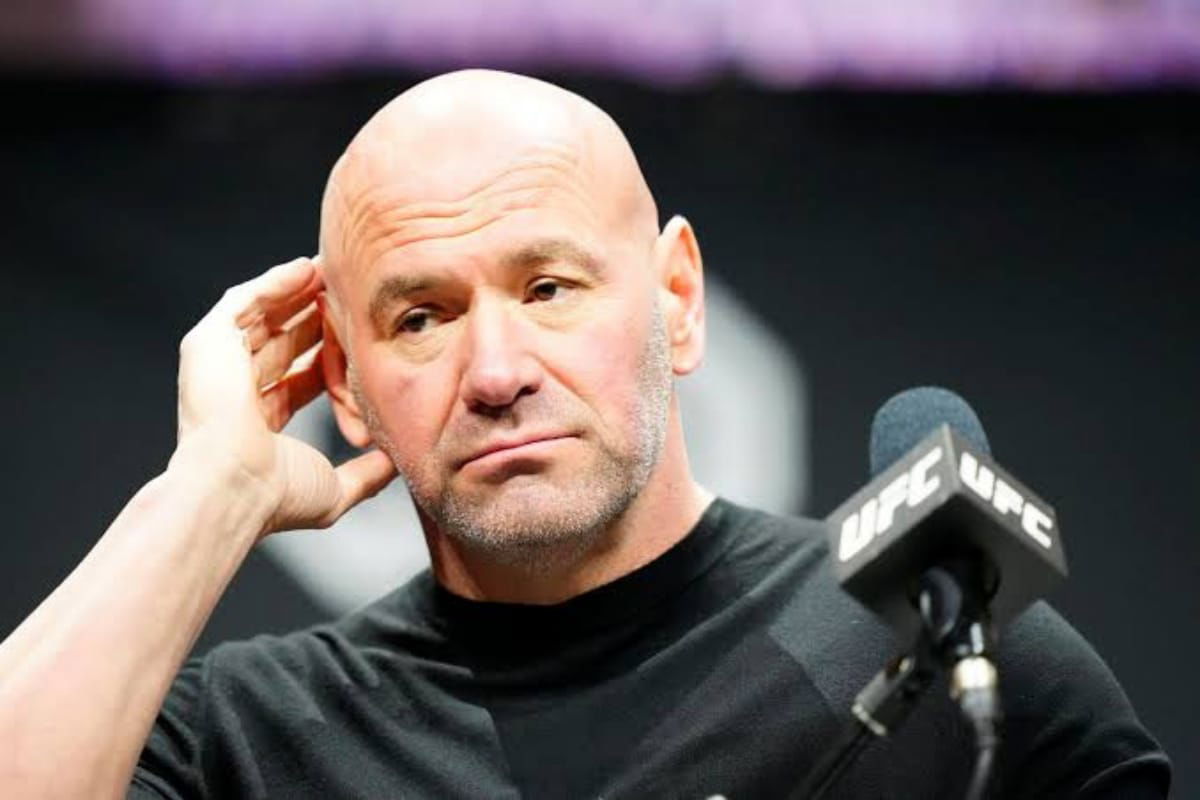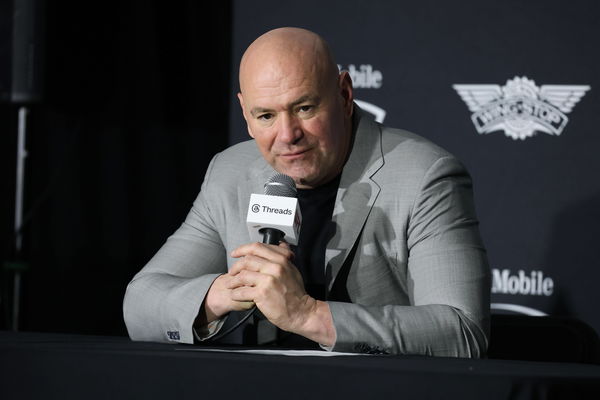

The UFC might be the undisputed king of global MMA, but American fighters face an uphill climb to reach the top. As of September 2025, only one U.S.-born athlete—Kayla Harrison—holds a title. In fact, for the first time since 2004, Americans rarely occupy the pinnacle of the sport, while Brazilian, European, and other international stars dominate the championship scene. Critics and fans have noticed, and understandably, the frustration runs deep.
Watch What’s Trending Now!
In response, earlier this year, Dana White & Co. tried to shift the narrative. Enter Aaron Pico, the former Bellator prodigy hyped as the next big American hope. Immediately, the buzz electrified the UFC ahead of his debut at UFC 319. However, the story didn’t go according to plan. Pico stepped into the cage against Manchester’s rising phenom, Lerone Murphy, a man riding a 17-fight win streak.
ADVERTISEMENT
Lerone Murphy exposes UFC’s hype machine behind Aaron Pico’s big debut
In just the first round, Murphy’s spinning back elbow turned the lights out for Aaron Pico, sending the American into a long hiatus. As a result, fans and pundits buzzed with excitement—and some expressed frustration that all the Pico hype overshadowed ‘The Miracle,’ the #4-ranked contender. Even Michael Bisping weighed in, voicing similar frustrations on his YouTube channel. Despite the hype, Murphy didn’t feel bitter.
ADVERTISEMENT
He saw the bigger picture. “I like to see things from a few different perspectives. The way I looked at it is the American—there’s no American champions at the minute. He’s got a big name, obviously he’s got the wrestling pedigree and all that stuff. So I feel like the UFC wanted him to be champion. Otherwise, they wouldn’t have put him against the number one contender,” he explained.
Leading up to the fight, chaos unfolded when Movsar Evloev withdrew just weeks before UFC on ABC 9 in Abu Dhabi, leaving Pico without his scheduled opponent.
ADVERTISEMENT

Imago
UFC s president Dana White during the press conference, PK, Pressekonferenz after the fight between Spanish Topuria and Brazilian Charles Oliveira during the unofficial weigh-in event fight held at the T-Mobile Arena in Las Vegas, United States, 29 June 2025. Ilia Topuria vs Brazilian Charles Oliveira ACHTUNG: NUR REDAKTIONELLE NUTZUNG PUBLICATIONxINxGERxSUIxAUTxONLY Copyright: xOctavioxGuzmanx GRAF6466 20250629-55017266219_1
Consequently, the UFC reshuffled the deck, and Lerone Murphy stepped in on short notice. Rather than seeing it as a disadvantage, he saw it as more than just a fight—it was a golden opportunity for the title. “For me, it was just opportunity. I was just looking at it as opportunity… They give it to me on short notice. I’ve got nothing to lose here. I just go in there, beat this kid, and I take the number one spot,” Murphy said.
ADVERTISEMENT
Ultimately, the result underscored the international flavor dominating the UFC today.
| Heavyweight | Tom Aspinall | UK |
| Light Heavyweight | Magomed Ankalaev | Russia |
| Middleweight | Khamzat Chimaev | Chechnya |
| Welterweight | Jack Della Maddalena | Australia |
| Lightweight | Ilia Topuria | Georgia |
| Featherweight | Alexander Volkanovski | Australia |
| Bantamweight | Merab Dvalishvili | Georgia |
| Flyweight | Alexandre Pantoja | Brazil |
ADVERTISEMENT
Islam Makhachev & Sean Strickland reveals the strategy behind UFC’s non-American talent push
Since Khabib Nurmagomedov stormed onto the UFC scene, Russian and Middle Eastern Muslim fighters have taken the sport by storm. Even before their rise, Brazilian and Mexican athletes were America’s main rivals. But everything accelerated when Nurmagomedov, Islam Makhachev, and other Russian fighters arrived with their infamous “no girlfriend, no bullsh-t” mentality.
Dagestanis and other Russian Muslim fighters quickly made serious noise, commanding attention across the MMA world. Makhachev offered insight into this relentless mindset: “Our boys live for this sport. In the United States, for example, they don’t even worry if they compete badly.”
ADVERTISEMENT
Not everyone agrees, though. Former UFC middleweight champion Sean Strickland highlighted the other side of the coin—fighter pay, where the UFC has often faced criticism: “They don’t pay guys. So, like, the reason why you’re seeing everybody in the roster is Ahmed and, you know, Jose and whatever Brazilian name, you know? And it’s because the UFC isn’t paying you guys money.”
His remarks sparked backlash online for stereotyping fighters’ names, and many analysts pushed back, pointing out that lower pay affects American prospects just as much. On Reddit and X, fans argued that U.S. prospects often jump to the PFL or Bellator for guaranteed purses, leaving the UFC pipeline less stocked with domestic champions.
ADVERTISEMENT
Additionally, ESPN analyst Brett Okamoto noted recently that the “globalization of MMA was always inevitable—training camps in Dagestan, Sao Paulo, Sydney, and Tbilisi now produce athletes who are elite from day one. The UFC didn’t engineer this, but it benefits from signing the best, wherever they come from.” Including this wider perspective prevents the narrative from slipping into a “UFC vs. America” oversimplification.
With both perspectives laid out, what’s your take on Dana White and the UFC’s apparent preference for non-American talent over U.S. fighters? Share your thoughts below.
ADVERTISEMENT
ADVERTISEMENT
ADVERTISEMENT